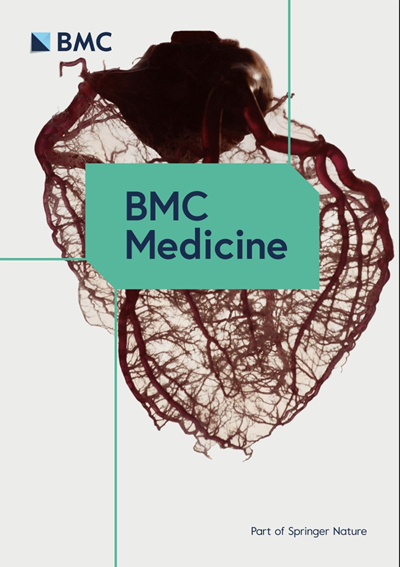Helicobacter pylori seropositivity associates with hyperglycemia, but not obesity, in Danish children and adolescents
IF 7
1区 医学
Q1 MEDICINE, GENERAL & INTERNAL
引用次数: 0
Abstract
Helicobacter pylori colonizes the human stomach and may affect the inflammatory response, hormone production related to energy regulation, and gastrointestinal microbiota composition. Previous studies have explored a potential association between H. pylori infection and pediatric obesity with varying results. Considering the immunomodulatory effects of early-life infection with H. pylori that can confer beneficial effects, we hypothesized that we would find an inverse relationship between H. pylori seropositivity and obesity among Danish children and adolescents. We assessed H. pylori seroprevalence in 713 subjects from an obesity clinic cohort and 990 subjects from a population-based cohort, aged 6 to 19 years, and examined its association with obesity and other cardiometabolic risk factors. No association was found between H. pylori and body mass index standard deviation score (BMI SDS). H. pylori seropositivity was, however, significantly associated with higher fasting plasma glucose levels and the prevalence of hyperglycemia. While we did not find an association between H. pylori seropositivity and BMI SDS, we observed a significant association with higher fasting plasma glucose levels and increased prevalence of hyperglycemia, suggesting that H. pylori infection may contribute to impaired glucose regulation in Danish children and adolescents.幽门螺杆菌血清阳性与丹麦儿童和青少年的高血糖有关,但与肥胖无关
幽门螺杆菌在人类胃部定植,可能会影响炎症反应、与能量调节相关的激素分泌以及胃肠道微生物群的组成。以往的研究探讨了幽门螺杆菌感染与小儿肥胖之间的潜在联系,结果各不相同。考虑到早期感染幽门螺杆菌可产生有益的免疫调节作用,我们假设幽门螺杆菌血清阳性与丹麦儿童和青少年肥胖之间存在反向关系。我们评估了来自肥胖诊所队列的 713 名受试者和来自人群队列的 990 名受试者(年龄在 6 至 19 岁之间)的幽门螺杆菌血清阳性率,并研究了幽门螺杆菌与肥胖及其他心脏代谢风险因素之间的关系。研究发现幽门螺杆菌与体重指数标准偏差分值(BMI SDS)之间没有关联。然而,幽门螺杆菌血清阳性与较高的空腹血浆葡萄糖水平和高血糖患病率有显著关联。虽然我们没有发现幽门螺杆菌血清阳性与体重指数标准偏差之间存在关联,但我们观察到幽门螺杆菌血清阳性与空腹血浆葡萄糖水平升高和高血糖患病率增加有显著关联,这表明幽门螺杆菌感染可能会导致丹麦儿童和青少年的葡萄糖调节功能受损。
本文章由计算机程序翻译,如有差异,请以英文原文为准。
求助全文
约1分钟内获得全文
求助全文
来源期刊

BMC Medicine
医学-医学:内科
CiteScore
13.10
自引率
1.10%
发文量
435
审稿时长
4-8 weeks
期刊介绍:
BMC Medicine is an open access, transparent peer-reviewed general medical journal. It is the flagship journal of the BMC series and publishes outstanding and influential research in various areas including clinical practice, translational medicine, medical and health advances, public health, global health, policy, and general topics of interest to the biomedical and sociomedical professional communities. In addition to research articles, the journal also publishes stimulating debates, reviews, unique forum articles, and concise tutorials. All articles published in BMC Medicine are included in various databases such as Biological Abstracts, BIOSIS, CAS, Citebase, Current contents, DOAJ, Embase, MEDLINE, PubMed, Science Citation Index Expanded, OAIster, SCImago, Scopus, SOCOLAR, and Zetoc.
文献相关原料
| 公司名称 | 产品信息 | 采购帮参考价格 |
|---|
 求助内容:
求助内容: 应助结果提醒方式:
应助结果提醒方式:


